Interview: How SOME LIKE IT HOT Orchestrators Charlie Rosen and Bryan Carter Brought Big Band Back To Broadway!
Some Like It Hot is bringing audiences to its feet eight times a week at Broadway's Shubert Theatre!
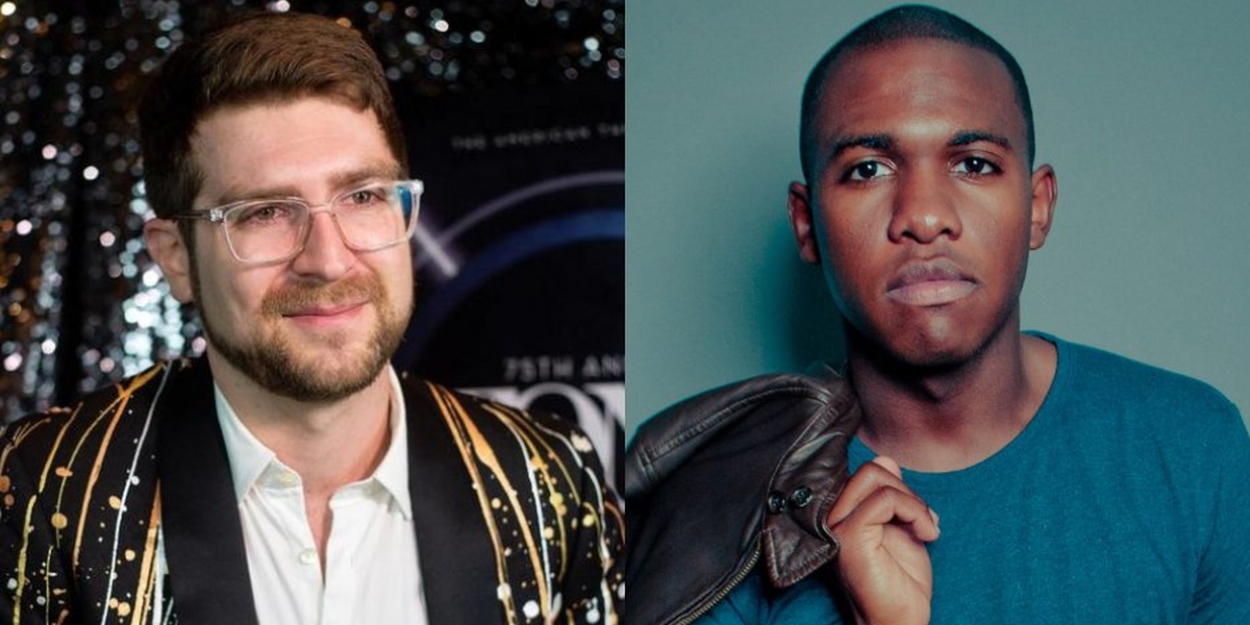
This season, the new musical Some Like It Hot is bringing the old-fashioned showstopper back to life on Broadway.
Set in Chicago when Prohibition has everyone thirsty for a little excitement, Some Like It Hot is the rollicking story of two musicians forced to flee the Windy City after witnessing a mob hit. With gangsters hot on their heels, they're on the run as the newest members of the swingingest big band ever to cross the country.
Featuring a score from one of the theatre's most esteemed partnerships, Tony-winners Marc Shaiman and Scott Wittman, the show is a paean to the sounds of its classic time period, utilizing aspects of Prohibition Era jazz, big band, and swing.
Bringing the joyous score to life each night is a 17-piece orchestra performing explosive orchestrations from another first-rate team, Tony and Grammy Award-winner Charlie Rosen and esteemed jazz musician, bandleader, and educator Bryan Carter, fresh off their most recent collaboration, the Tony and Pulitzer Prize-winning musical A Strange Loop.
BroadwayWorld had the opportunity to chat with Charlie and Bryan about the origins of their collaboaration, working with Shaiman and Wittman, and how they built Some Like It Hot's Signature Sound! Read excerpts from our conversation here!
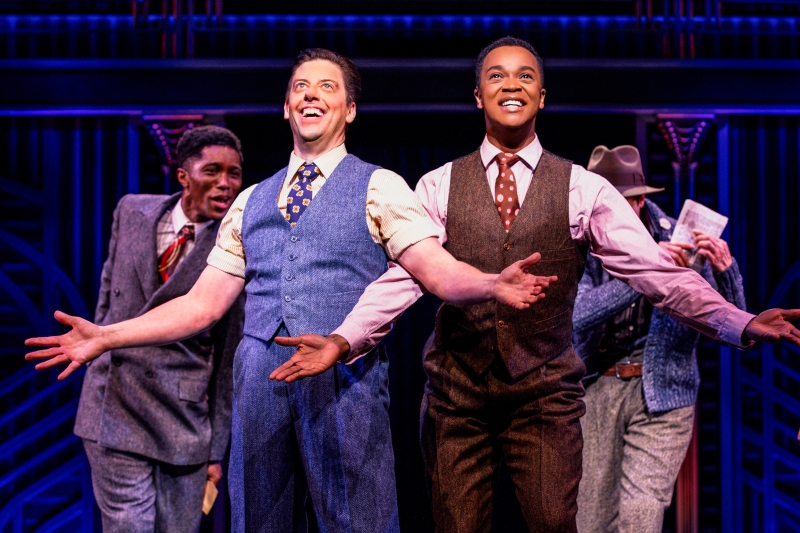
I think a lot of people think the composer does your job. So, just to kick things off, what, in your own words, is the job of the orchestrator, and how does it differ from that of the composer?
Charlie Rosen: It is true what you say. I think a lot of people tend think that the composer writes the show, and that's the show. It's sort of a holdover from musical theater evolving from opera. In the opera world, that is exactly what happens. The composer writes the show, here's your show. In theatre, usually the composers play an instrument and they're songwriters. Not to get semantical about it, but they're writing songs. A musical happens in such a short period of time, so even if these composers did have the facility to write for every single instrument that's in a Broadway show, just on the sake of time alone, it would be a big challenge. Some composers do do it, but a lot of them don't. So, basically what I like to tell people is what an orchestrator is, is somebody who hears the potential in a piece of music or a song that's been written by somebody else.
So, they make a line drawing and we take our palette of colors based on what instruments are available- that's dictated to us by the genre of music, that the show is the time period and other considerations like that, and those instruments become our palette of paints, and we take the drawings that the composers make and add detail and color. The orchestrations often tell you a lot about how you're supposed to be feeling based on the instruments and colors we choose to express those emotions. So we take what the composer has sketched for us, and we deepen and broaden and run with those ideas with our pallet of sounds.
Bryan, you've worked predominately in the jazz world and are relatively new to musical theatre. What have you learned, if anything about the differences in orchestrating for character and story versus say, instrumentals for a jazz orchestra?
Bryan Carter: You know, they're not so different. That's really been the greatest lesson. We as arrangers and orchestrators try to take such good care of story and lyric. I would say the primary difference would be dialogue. When you're writing for the stage, we have to be so careful that the audience is really getting to hear and process everything that the actors are saying. That was the first big lesson. Specifically, on A Strange Loop, it was a small pit and then you kind of had the added technology side of it and getting that all together. So that was a fun challenge.
So, are you hooked on musicals now? Are you a lifer?
Bryan: I'm a lifer and this is so different from where I was. When I met Charlie, and it's ironic because we met on a show, but I was like, "I will never, ever work on Broadway." That was my hill to die on and he's softened me over the last decade. [laughs] I would love to do more shows.
So how did the two of you become involved with Some Like It Hot?
Charlie: It actually all kind of started with Charlie Rosen's Broadway Big Band. One of the people who really loved the show and would come frequently was Marc Shaiman. So I got to know him because he would come check out the show. He kept coming, and then we started working together a little bit on little one-off projects. I'd help him with one song here and there over the years. Then he said, "Hey, I'm working on a musical adaptation of Some Like It Hot and we need some demos of orchestrations. Would you want to help me out with that?" I said, "Of course!" He sent me his songs and I, sensing an opportunity, went as hard as I could possibly go on these demos. [laughs] I played a number of different instruments. I played like four trumpet parts and four trombone parts. I had friends do me a favor and record all these sax parts. I did woodwinds and all the percussion. I recorded vocal harmonies that I sang myself and I threw all the bells and whistles on it. And I think that's what landed me the gig.
Then in May of 2020, in the spirit of making this process more inclusive in inviting people from communities that may not necessarily have an in to the world of theatre, especially in an niche thing like orchestrating, they asked if I knew anybody that might join and bring their knowledge to the team on jazz and big band. Then, of course, Bryan was the first person that I thought of and the rest is history.
Bryan: Backtracking back to what I was saying earlier, when I told Charlie I never wanted to work in theatre, it wasn't because I had a dislike of theatre, it was because I didn't feel like this was like really a space for me. The people who I did know who have worked on Broadway as actors, or in some other capacity, had not great experiences being in these all- white spaces where they weren't shown any respect. I had no interest in doing that. Going into this process, if I had just gotten the call from some person I didn't know, I don't know if I would've taken the opportunity but I know Charlie, I know Charlie's heart. He's one of my best friends so it really made it a safe space being there.
Charlie: Talking about creative teams as it stands, there are very few working professional level theatre orchestrators. It's so niche. So as a result of the world at large, it's mostly an old white boys club but there are so many other great arrangers like Bryan and how are they ever going to find their way in? People always say, well, it's a specific thing and they have to learn before they can do a Broadway show, but there's no school, there's no Orchestrating For Theatre 101 class, sadly, yet. So then you just have to do it, and put your money where your mouth is. Some Like It Hot did do it. So you gotta give them credit for that.
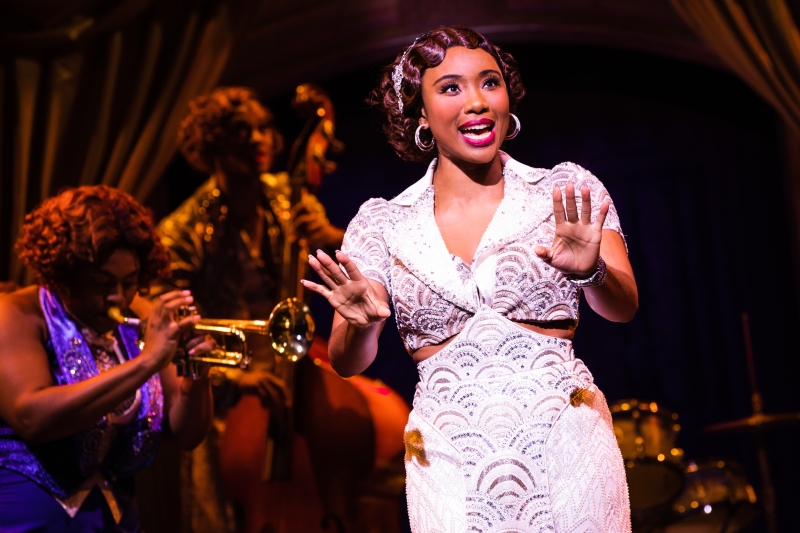
Now, Bryan, you get a phone call from your friend Charlie, and he wants you to come work with Marc Shaiman. What's that phone call like?
Bryan: It was during the pandemic. You called me one day, very nonchalantly, and you were like, "Hey, can you put together like a demo of like some charts you've written?" And I was like, "Yeah, what for?" You were like, "Oh, you know, this new Marc Shaiman musical." [laughs] And Charlie knows that there are very few people that I'm like "wow" about. So, I went that afternoon and put together a super cut of just different orchestrations and arrangements I had done. Then I kind of forgot about it, and I think [to Charlie] you kind of forgot about it. [laughs] I think I called like a couple of months later and I was like, "Hey, whatever happened with that?" You were like, "Oh! Yeah, they loved it. You're on board."
I feel like a composer's relationship to the orchestrator could go the Sondheim route where he would write something and hand it off to Jonathan Tunick to do his magic or the Lin Manuel-Miranda route where he and Alex Lacamoire work really closely the whole way through building the score. What was your experience like collaborating with Marc Shaiman?
Charlie: It was pretty collaborative because Marc himself is a great orchestrator. He is a "composer" in the true sense of the word. He can write for every instrument, he can write instrumental music- he can do all of our jobs. So a lot of it is a big collaboration between us and Marc. When Marc hears what our work for the first time, he gives notes and he changes things, then we change things. He gives us ideas and we take them and run with them. It's very back and forth. It's also very collaborative between me and Bryan as well. So it's kind of a triangle of orchestration collaboration.
Bryan: I mean, at first I was terrified of him. [laughs] Marc's a genius as is Scott [Wittman], and one of the most enjoyable parts of the process is just being able to watch him work and look at your work and feel like you're a student. Not only that, but he encourages you spar with him a little bit. It's really rare that you get someone who's so proficient at their craft, yet they're still willing and open to being collaborative as well, while at the same time being our mentor and teacher in a sense. It takes a very special kind of person to open themselves up that way and to express the kind of vulnerability that Marc has expressed to Charlie and I think I speak on both of our behalf when I say that we're so grateful and thankful to be a part of this team.
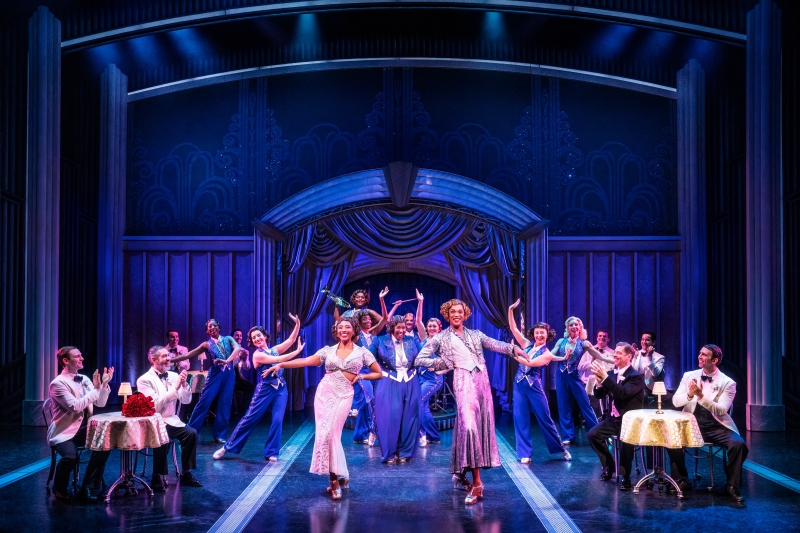
Even being as accomplished in your own rights as you both are, what do you learn from a Marc Shaiman or a Scott Wittman that will inform your process beyond this project?
Bryan: We're just kids. [laughs] We're children. That's what I've learned. We are children.
[both laugh]
Charlie: The one thing I have learned working with Marc is dramaturgical instinct as a musician. Being able to see the thing, whether it be film, TV, stage, video game, and just know what the thing needs musically that won't be too distracting, and that will comment and underscore the action in a way that will add value to the piece and won't get in the way of the thing itself. That is honestly a skill that really separates the professionals from the less experienced people, and it's something that we constantly, constantly work at. Especially as younger arrangers and orchestrators, and I still do this all the time, we tend to overspeak. We have all these ideas and want to try them all. He is very, very efficient with the choices that he makes, and that is a lesson that I think we can always learn as theatre creatives, and that's probably true across all the various disciplines in the theatre creative team.
Bryan: For me, I would say it's his attention to detail. He has such a tremendous amount of focus for every little minute detail. Beyond that, really, I think the larger picture is just like a tremendous amount of integrity. There are no band-aids with Marc Shaiman. If something's not right, he's going to stop and he's going to go back and he's going to do it again, and he's going to make sure that we're going to keep going over it until it's right.
And what have you guys learned from each other over the course of your collaboration?
Bryan: I've learned so much from just watching Charlie work and learning what's necessary to make sure that Marc and Scott and the cast and everyone else are happy. Just watching his process and watching him interact with the creative team, it's been a really wonderful masterclass. It's always amazing when you can be in awe of your peers and people that you love, and watch them work and be like, "Wow, they're so great at their craft," you know? It's inspiring.
Charlie: I've picked up like a ton of just pure writing vocabulary from Bryan. Bryan is a drummer, so I've learned lots of drum writing vocabulary and lots of horn writing vocabulary that I wouldn't have thought of otherwise. Bryan wrote this one big, shouty horn figure for Some Like It Hot. Now I'm working on a production of Guys and Dolls, Bryan wrote this killing line, and I thought it really belongs in Guys and Dolls, too. So, let's make it part of theatre history. Let's go.
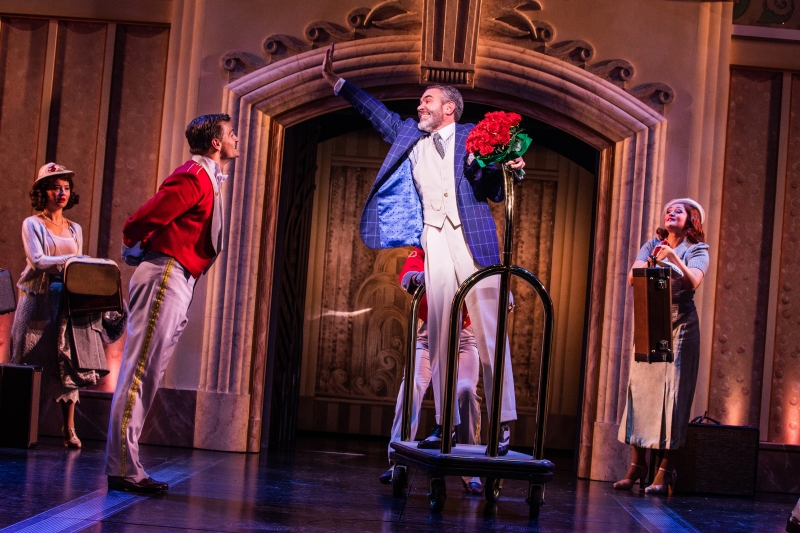
Charlie Rosen is a Tony Award-winning and Grammy-nominated composer and orchestrator whose music has been heard on stages and screens around the world. Recent Broadway credits include Some Like It Hot (Orchestrations); Be More Chill (Music Sup./Orchestrations); Moulin Rouge! (Orchestrations, Tony Award); Prince of Broadway (Orchestrations); American Psycho (Assoc. MD/Keys); The Visit (Guitar/Zither); Honeymoon in Vegas (Orchestrations); Cyrano de Bergerac (Composer); One Man, Two Guv'nors (Music Director, Bass); 13 The Musical (Guitars, Bass, Keys), Bloody Bloody Andrew Jackson (Assoc. MD, Bass, addl. Orch.).
Shortly after completing his training at The Juilliard School in New York City and still at the very outset of his career, Bryan Carter has already played and/or recorded with many notable artists including Clark Terry, McCoy Tyner, Wynton Marsalis, Marcus Roberts, Kenny Barron, Michael Feinstein and Kurt Elling.
Carter attended The Juilliard School as a Jazz Studies major and studied with Carl Allen and Kenny Washington. He was the recipient of the Irene Diamond Scholarship as well as the Samuel L Jackson Scholarship. While at Juilliard, Carter took a strong interest in composition, orchestration and interdivisional cross-collaborative performance.
Bryan is currently touring across the world with his band, "The Swangers", a diverse semi-acoustic band built upon a foundation of brash eclecticism as well as it's expanded "concert-driven" counterpart, "The Swangers Orchestra". He served as the house drummer for NBC'S "Maya & Marty" starring Maya Rudolph, Keenan Thompson and Martin Short. The show has featured guests including Miley Cyrus, Nick Jonas, Tom Hanks, Drake, Steve Martin and Tina Fey. He also served as the drummer for the beloved children's television show, "Sesame Street".
Aside from performing Carter conducts clinics, master-classes and workshops at schools, colleges and universities around the world. Currently Carter served as a founding teaching artist for the Jazz at Lincoln Center, "Jazz for Young People" program in New York City. As a proud member of the LGBTQIA+, Bryan is committed to the creation of safe spaces for young musicians from all walks of life. This past summer Carter produced, "Jazz at Pride: A Celebration of the LGBTQIA+ Community within the Jazz Community". This landMarc event brought together over thirty musicians and coincided with the 50th anniversary of the Stonewall riots..
When Bryan is not on-stage or in the studio, he can be found expanding audiences for jazz via written publications, YouTube and as a presenter on television. Bryan is releasing a new album via Bandstand Presents and La Reserve Records and endorses Ludwig Drums, Vic Firth Drumsticks, Remo Drumheads, Zildjian Cymbals and 64 Audio Monitors.


 Some Like it Hot Thirsty Mug
Some Like it Hot Thirsty Mug Some Like It Hot Tote Bag
Some Like It Hot Tote Bag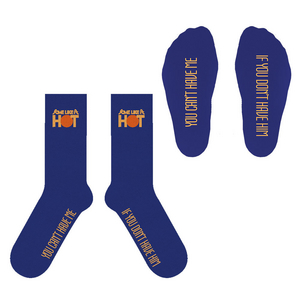 Some Like It Hot Quote Socks
Some Like It Hot Quote Socks Some Like It Hot Logo Luggage Tag
Some Like It Hot Logo Luggage Tag